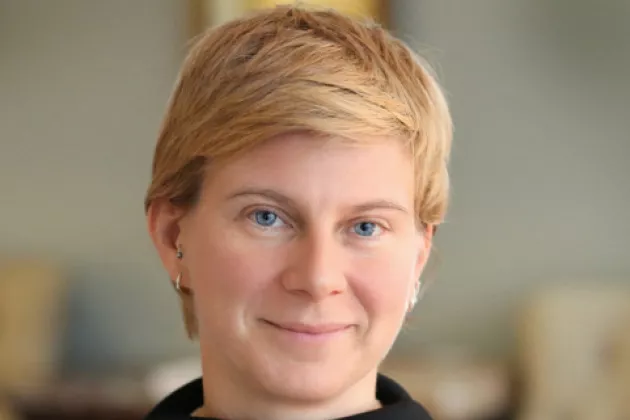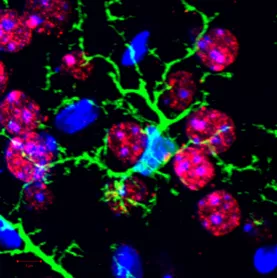Neurobiology, the study of our brain and nervous system, is a field that holds the keys to understanding the very essence of human life and consciousness. This year´s Segerfalk lecture at the Faculty´s Neuroscience Day (May 7) will be held by renowned neuroscientist Anne Schäfer, (Mount Sinai, New York/ Max Planck Institute for Biology of Ageing, Köln).
Anne Schäfer´s lecture, “The operational principles of neuron-microglia circuits”, will delve into the once-overlooked microglia, the brain’s immune cells.
Far from being mere “garbage cleaners,” these cells are now known to produce molecules that significantly influence neuron function. The researcher’s quest to unravel the complex interactions between microglia and neurons is reshaping our understanding of brain activity.
The speaker will share insights into the critical functions of microglia. These cells are the unsung heroes maintaining brain health, removing defunct neurons, and even controlling neuronal activity. The relationship between neurons and microglia is akin to a symbiotic partnership, each reliant on the other for survival.
– The discovery that microglia actively modulate neuron activity heralds a new era of research, with profound implications for our understanding of the brain, explains Anne Schäfer.
Unlocks secrets
The field of epigenetics, which examines how environmental factors influence gene function, plays a pivotal role in this research. The adaptability of microglia through epigenetic changes is a testament to the brain’s remarkable plasticity, with long-term effects that could redefine our approach to various diseases.
– The potential implications of this research for treating neurological conditions are immense. From Alzheimer’s to long COVID and seizures, understanding the function of microglia opens doors to novel treatments and interventions, explains Anne Schäfer, who envisions a future where the secrets to neuron health and longevity are unlocked, paving the way for a deeper comprehension of how neurons thrive as we age.
This lecture is an invitation to be inspired and to explore the wonders of the human brain.



